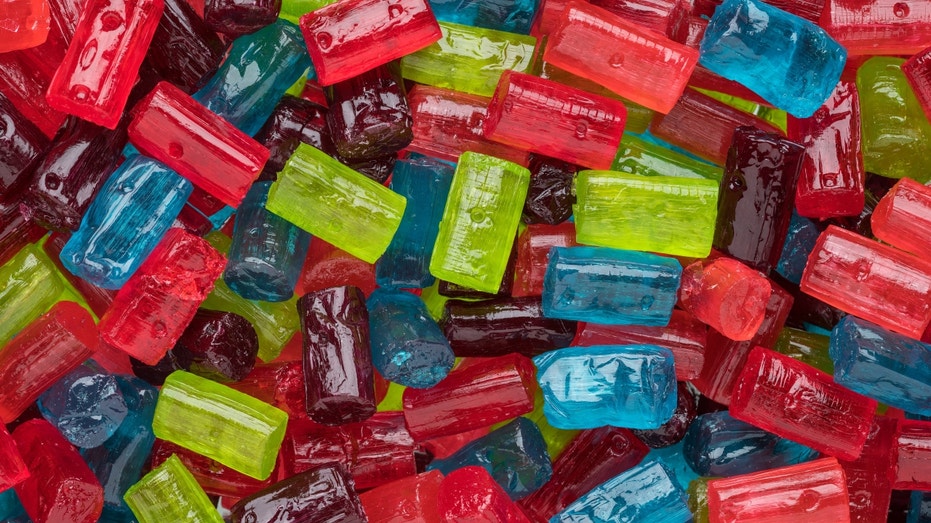One of America’s favorite candies has been shunned by authorities in the United Kingdom, who claim it is “unsafe to eat.”
The U.K.’s Food Standards Agency (FSA) announced a stern advisory against Jolly Rancher candies on June 11.
The alert applies to all Jolly Rancher hard candies, as well as Jolly Rancher Misfits, Jolly Rancher Fruity 2 in 1s and Jolly Rancher Berry Gummies.
‘NOT RECOMMENDED FOR HUMAN CONSUMPTION’ LABEL MAY BE REQUIRED ON CHIPS, CANDIES IN TEXAS
The reason, the FSA claims, is that the candies contain “Mineral Oil Aromatic Hydrocarbons (MOAH) and Mineral Oil Saturated Hydrocarbons (MOSH).”
The agency said the hydrocarbons make the candies “unsafe to eat and not compliant with U.K. laws.”
The FSA has instructed British consumers not to buy or eat the products.
FOOD DYES TO BE PHASED OUT BY TRUMP ADMINISTRATION IN LATEST ROUND OF BANS
“If you’ve eaten these products, there should be no immediate cause for concern, as food safety risk is low, but don’t eat any more,” the agency said.
“These products contain mineral oil, which isn’t allowed in food in the U.K. and may pose a food safety risk if consumed regularly over a sustained period of time.”
Although the alert did not mention the word “ban,” the FSA said that it had “requested enforcing authorities in the U.K. to take action to remove products, to protect consumers.”
Jolly Ranchers were first introduced to the U.S. candy market in 1949. They come in a variety of flavors, including watermelon, cherry, blue raspberry, grape and green apple.
For more Lifestyle articles, visit foxnews.com/lifestyle
The candies were acquired by the Hershey Company in 1996.
Todd Scott, a spokesperson for the Hershey Company, headquartered in Pennsylvania, told Fox News Digital this week that the “safety and quality” of Jolly Rancher candies is the company’s “first priority, and consumers can rest assured that our products are safe to enjoy.”
Scott went on, “As a global brand with a wide audience, we also recognize our products can sometimes be purchased in markets other than those for which they were originally produced. In such cases, we cannot guarantee that the products meet the regulatory requirements of the end market, which may differ from those of the U.S.”
Mineral oil hydrocarbons enter food “through environmental contamination, use of lubricants for machinery, release agents, processing aids, food or feed additives and migration from food contact materials,” according to the European Food Safety Authority (EFSA).
CLICK HERE TO SIGN UP FOR OUR LIFESTYLE NEWSLETTER
The negative health impacts of mineral oil hydrocarbons can vary widely, according to the European agency.
“MOAH may act as genotoxic carcinogens (they can damage DNA, the genetic material of cells, and may cause cancer), while some MOSH are known to accumulate in the liver and lymphoid system,” the EFSA’s website states.
The FDA also regulates the presence of hydrocarbons. According to the Code of Federal Regulations, mineral oil “may be safely used as a component of nonfood articles intended for use in contact with food,” if it meets certain rules.
Scott told Fox News Digital that the Hershey Company is “continuing to work closely with the FSA in the United Kingdom on these important issues” and that it looks forward to “bringing Jolly Rancher products back to established retailers soon.”


